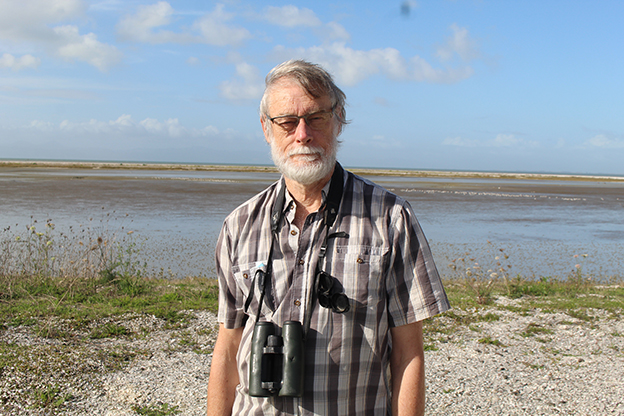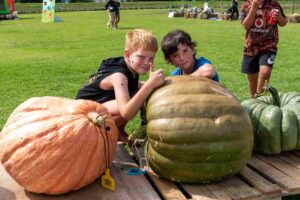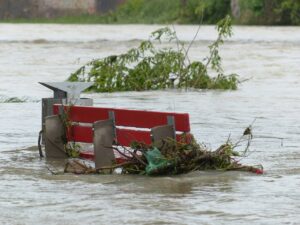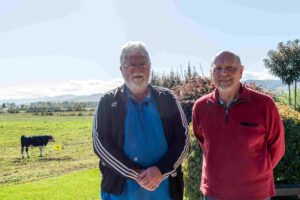A hobby drawing birds led Keith Woodley to flock to shorebird conservation.
The resident manager of Pūkorokoro Miranda Shorebird Centre for close to 30 years was made a Member of the New Zealand Order of Merit (MNZM) in the Queen’s Birthday and Platinum Jubilee Honours.
Keith told The Profile he was surprised by the honour but it was recognition of the Pūkorokoro Miranda Naturalist Trust.
“I thought well I’ve been effectively the front person for this trust… the work I do and the trust, we’re the same really, and the comments I received since sort of support that view that it’s for me but for the trust as well,” he said.
“Which is great because this organisation has done some fabulous work… there’s some great people associated with it. “There’s been a lot of messages coming in from family, colleagues and so forth including people I’ve been in touch with for quite some time so it’s been interesting how these things draw all sorts of surprises.”
Keith said his interest in shorebirds came by accident when he started experiencing close bird encounters to study birds in more depth for art subjects.
“That led me to join Ornithological Society of New Zealand (Now Birds New Zealand) and joining that organisation was the pivotal step because after joining Birds New Zealand my life changed 90 degrees,” he said.
“I got involved in conservation, volunteering on the likes of Hauturu and Kapiti Island and doing some really good stuff with some good people in the field which cemented my whole birding interest, which led me directly to being asked if I was available to come and take up the role here.
“I had no real idea how long I’d be here, it might’ve been a few months – I had no idea it would be a few decades.”
Keith said his highlights with the centre included writing a book about godwits, which led him to camp for two and a half months on an Alaskan tundra, satellite tracking godwits migration with regular updates on Facebook and engaging with visitors.
“When I went to university I had intentions of becoming a teacher. I never ended up becoming a teacher but then I came here and the first day I arrived I found myself talking to a group of brownies [Girl Guides] and then school visits came subsequently,” he said.
“I calculated that by the end of 2018, I’d spoken to something like 25,000 school students.”
Keith said the most significant change he had seen was the area’s decreasing bird numbers.
“When I first came here in 1993, we would expect to find nine to 10,000 godwits on the Firth of Thames, now in recent years the average has been five or six [thousand] although we did get up to eight [thousand] last year,” he said.
“The main driver of those declines are they’ve lost a lot of habitat during their migration. Godwits depend on habitats here and in East Asia, where they stop during migration, and on the breeding grounds you need to be looking after all those places because if the birds lose one of those places their whole system falls over.
“So that’s drawn the trust into engagement in East Asian flyways. In recent years, a lot of the trust profile has been built around the work we’ve been doing in places like China and North and South Korea, and that’s been getting great traction.”
Keith said the public needed to be aware of problems facing the Firth of Thames and ways to improve its bird habitats.
“The State of the Gulf reports that have come out every two or three years have been a steady catalogue of declining health of the Firth,” he said.
“Excess nutrients, excess sediments are impacting all the ecosystems out there so we need to be very conscious of maintaining that health.
“We’ve got to see our estuarine areas as really valuable ecosystems, where the shorebirds are tidal, they’re dependent on the food they find in the mudflats, and when the tide comes in they’ve gotta find places to roost.
“They’re very vulnerable to disturbances at those times so we need to be mindful of their space secure from disturbance.”




